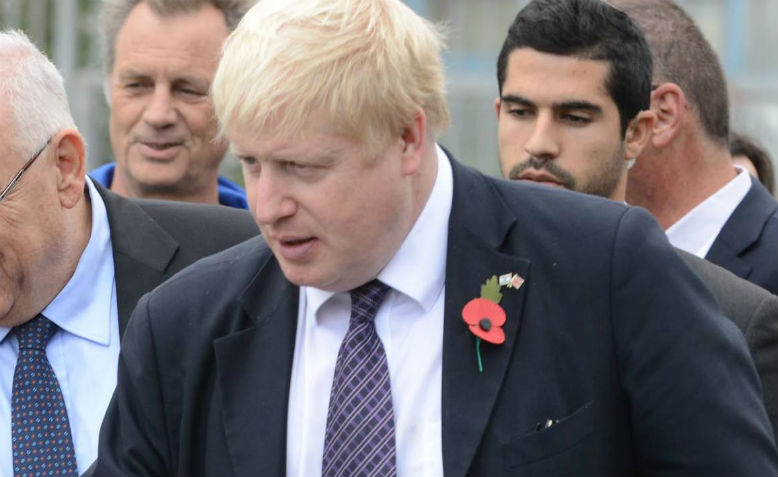 Boris Johnson, November 2015. Photo: Mark Neyman/Government Press Office (Israel)
Boris Johnson, November 2015. Photo: Mark Neyman/Government Press Office (Israel)
Poppies must not distract us from the Tories’ contempt for the working class, writes Mona Kamal
In the coming days there will be the usual deluge of images of MPs and government ministers with poppies on their lapels staring solemnly ahead at the Cenotaph, gestures which will be all the more performative in the context of an election campaign. Behind these images however, the reality as far as this Tory government is concerned is a record of abject failure in their duty of care to veterans leaving the army and struggling to adjust to ordinary life.
There are few clearer examples of Tory hypocrisy than their treatment of ex-service men and women whom they are very willing to return to a life of rough sleeping, benefits sanctions, food banks and Work Capability Assessments.
There are those who managed to return home to their families but died as a result of austerity inflicted by the same ministers brandishing their poppies.
In 2014 army veteran David Clapson died unable to afford food or electricity after having his Jobseeker’s Allowance cut as a result of the coalition government’s welfare reforms. According to the coroner he died after electricity – needed to run the fridge where he kept his insulin – was cut off.
Navy veteran Gordon Lang, a wheelchair-bound amputee died from lung cancer after his benefits were cut and the Department of Work and Pensions told him to find a job despite being terminally ill. He died whilst in the middle of a fight against the DWP, then headed up by Ian Duncan Smith.
71 British veterans and serving personnel committed suicide in 2018. There is a crisis in mental health care in the NHS and veterans are amongst those being failed. A study published in 2016 of those serving in the army showed that mental illnesses such as depression, anxiety and alcohol misuse had increased by 78% in the preceding eight years with women twice as likely as men to be assessed as having a disorder. But there is a distinct lack of specialist mental health provision for those who have witnessed traumatic events while fighting: research by The Mental Health Foundation in 2018 found that amongst the fifty thousand veterans living in the community that are in need of psychiatric treatment, only twenty thousand are receiving it.
Whilst there has been a 165% increase in overall homelessness since the Tories took office in 2010, again it is veterans who are over-represented in these figures with estimates suggesting that as many as six percent of the current UK homeless population could be ex-Armed Forces.
Likewise, a range of studies have found a disproportionate number of ex-servicemen in the criminal justice system. They were found to account for 7-10% of the prison population, with veterans who had seen combat in Iraq and Afghanistan more than twice as likely to have committed a violent offence than those in non-frontline roles.
There are few official statistics on the number of veterans serving prison sentences, and the Ministry of Defence has reportedly been keen to play down the problem. A survey published by the National Association of Probation Officers in 2010 found that one in ten prisoners had been in the Armed Forces – this means that at that point in time there were twice as many veterans in the criminal justice system as there were serving in Afghanistan. The same study found that domestic violence was by far the most frequent conviction, accounting for one in three cases.
Research carried out last year found that there were fifty thousand veterans living in our communities coping with mental illness, an additional ten thousand in prison or on parole and another six thousand were homeless. The scale of the suffering experienced by veterans is an indictment of our government who have failed in their basic duty of care.
Moreover, the fetishization of the red poppy has meant that its meaning has becoming diluted. Surely alongside ensuring a decent quality of life for those who do manage to return from war, the most meaningful way in which we can honour them and those who never came home is to commit to ending all wars.
The dominant message at the end of World War I was “never again” and the poppy was a reminder of the senseless massacre of innocents through war. That must be the core message promoted throughout the period of remembrance – not the glorification of war, not the popularization of militarism and not the policing of who is and isn’t wearing a red poppy or the absurdity of losing the plot over a bow not being sufficiently low.
Crucially, the ceremony of faux earnestness by our government must not be allowed to conceal the cruel realities of their treatment of ex-servicemen, who did not die in war overseas, but were killed instead by austerity policies at home.

